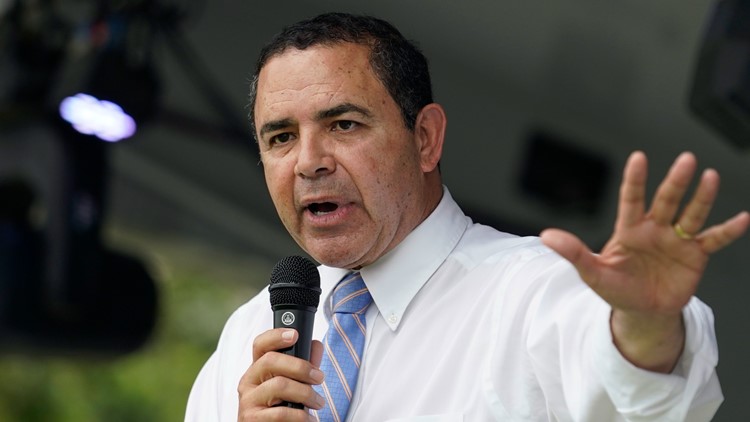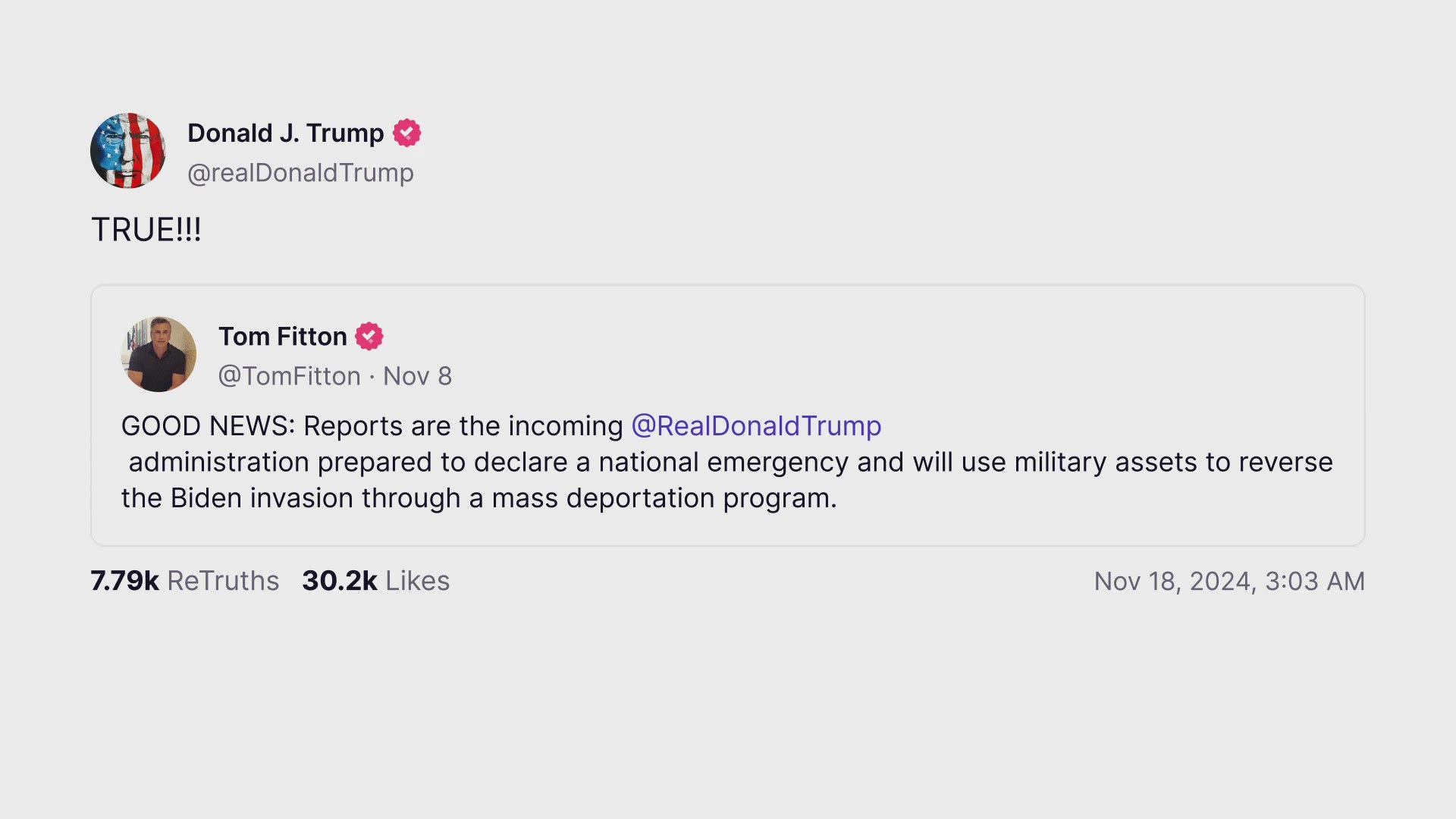AUSTIN, Texas — Two political consultants agreed to plead guilty to charges that they conspired with U.S. Rep. Henry Cuellar to launder more than $200,000 in bribes from a Mexican bank, according to recently unsealed court documents that show the consultants are cooperating with the Justice Department in its case against the Laredo Democrat.
Cuellar, a powerful South Texas Democrat, was indicted with his wife Imelda on charges of accepting almost $600,000 in bribes from Azerbaijan and a Mexican commercial bank, Banco Azteca. The indictment, unsealed last week, accuses Cuellar of taking money from the bank in exchange for influencing the Treasury Department to work around an anti-money laundering policy that threatened the bank’s interests. Cuellar allegedly recruited his former campaign manager, Colin Strother, and another consultant, Florencio "Lencho" Rendon, to facilitate the payments, according to court records.
Rendon and Strother both struck plea deals with the Justice Department in March, in which they agreed to cooperate in the agency’s investigation of the Cuellars. They each face up to 20 years in prison and six-figure fines for charges of conspiracy to commit money laundering.
The plea deals, which were first reported by the San Antonio Express-News, allege that Cuellar first asked Strother to meet with Rendon in February 2016 to “participate in a project to test and certify a fuel additive made by a Mexican company … so that it could be sold in the United States.” Rendon told Strother he would pay him $11,000 a month for the project, $10,000 of which Strother would pass on to Imelda Cuellar, according to the plea agreements.
Rendon paid Strother a total of $261,000 from March 2016 through June 2019, more than $236,000 of which Strother then paid to Imelda Cuellar, the documents allege. Strother concluded the project was “a sham,” according to his plea deal, because neither Rendon nor Imelda Cuellar “did any legitimate work.” Strother “understood that the true purpose of the payments” was to “funnel money” to Henry Cuellar without the Laredo Democrat having to reveal it in his annual financial disclosures.
Cuellar has asserted his innocence, releasing a statement Friday in which he said his actions were “consistent with the actions of many of my colleagues and in the interest of the American people.” He faces charges of bribery, money laundering and working on behalf of a foreign government.
Cuellar, a member of Congress since 2005, has considerable influence in Washington thanks to his long tenure and his spot on the powerful House Appropriations Committee. He was the top Democrat on the subcommittee that oversees funding for homeland security, a position he automatically forfeited under a House Democratic rule that requires a committee chair to step down if they are indicted on a crime carrying a possible prison sentence of more than two years.
As part of their plea agreements, Rendon and Strother agreed to testify “before a grand jury or in any other judicial or administrative proceeding when called upon to do so by the United States.” Each also agreed to turn over “all documents in his possession or under his control relating to all areas of inquiry and investigation.”
Rendon’s plea agreement also outlines the origins of the alleged bribery scheme, citing a series of 2015 meetings — allegedly orchestrated by Cuellar — at which Rendon and Banco Azteca executives discussed “U.S. regulatory issues” that were hampering the bank’s efforts to “facilitate remittances,” or “the transfer of money from Mexican workers in the United States to their relatives in Mexico.”
Soon after, Rendon allegedly signed a contract that would pay him $15,000 a month to provide “strategic consulting and advising services” for an unnamed “U.S.-based media and television company” that shared “common ownership under a Mexican conglomerate” with Banco Azteca, according to Rendon’s plea documents.
Rendon would then send Strother $11,000 of the monthly payments, keeping $4,000 for his own consulting firm, with the understanding that Strother would keep $1,000 for himself and forward the remaining $10,000 to Imelda Cuellar’s company, according to the court records. Rendon and Henry Cuellar allegedly never discussed having Rendon, Strother or Imelda Cuellar perform any work “in relation to the contract,” according to the plea agreement, which led Rendon to conclude that “the contract was a sham” and part of a scheme devised to “funnel money” from the bank to Henry Cuellar.
In its indictment of Henry Cuellar, the Justice Department alleged that the Laredo Democrat — in exchange for accepting bribes — agreed to “advise and pressure” officials in the executive branch to set up mechanisms that would help cross-border transactions crucial to Banco Azteca’s business.
He also allegedly tipped off the bank’s vice chairman about a bill that would temporarily bar the Consumer Financial Protection Bureau from making new regulations on the payday lending industry. Cuellar then coordinated with a U.S.-based subsidiary of the Mexican bank on language in defense of the bill, according to the indictment. The subsidiary was a payday lending company.
The indictment said Cuellar and his wife used the bribe money to cover credit card payments, taxes, car payments, dining and shopping, including $12,000 on a custom gown. It also said one of the Cuellars’ adult children assisted in the creation of the sham shell companies used to launder funds. The Cuellars have two adult children: Christy and Catie.
The Cuellars allegedly negotiated the agreement with Banco Azteca around the same time they were setting up a scheme to accept payments from Azerbaijan’s state-run oil and gas company, which were also laundered through fake consulting contracts to shell companies owned by Imelda Cuellar, according to the indictment.
In exchange, Henry Cuellar allegedly pushed U.S. policy that favored Azerbaijan, an oil-rich former Soviet country that borders Iran and Russia on the Caspian Sea. That included adding language to defense spending legislation to prioritize ties to countries in the region, including with Azerbaijan, and working to kill legislation prioritized by members who supported Armenian interests, the indictment alleges.
Azerbaijan had been engaged in a long-running border dispute with Armenia over Nagorno-Karabakh, an enclave made up of largely ethnic Armenians, until Azerbaijan forcibly retook control of the territory last year. Cuellar coordinated with Azerbaijani diplomats to eliminate legislation that would finance land mine clearing in Nagorno-Karabakh in 2017, according to the indictment, which cited text messages between Cuellar and a diplomat.
After news of the indictment landed, Cuellar affirmed that he still plans to seek reelection in November. Two Republicans, Navy veteran Jay Furman and rancher Lazaro Garza Jr., are facing off in a May 28 runoff to decide the GOP nominee in Cuellar’s district, which stretches from the border to the San Antonio suburbs.
The Cook Political Report, a nonpartisan election forecasting site, updated its rating for the district from “likely Democratic” to “lean Democratic” in response to Cuellar’s indictment. Cuellar, often ranked ideologically as the most conservative Democrat in the U.S. House, won reelection in 2022 by 13 percentage points, though Democratic gubernatorial candidate Beto O’Rourke carried the district by a narrower 5-point margin.



